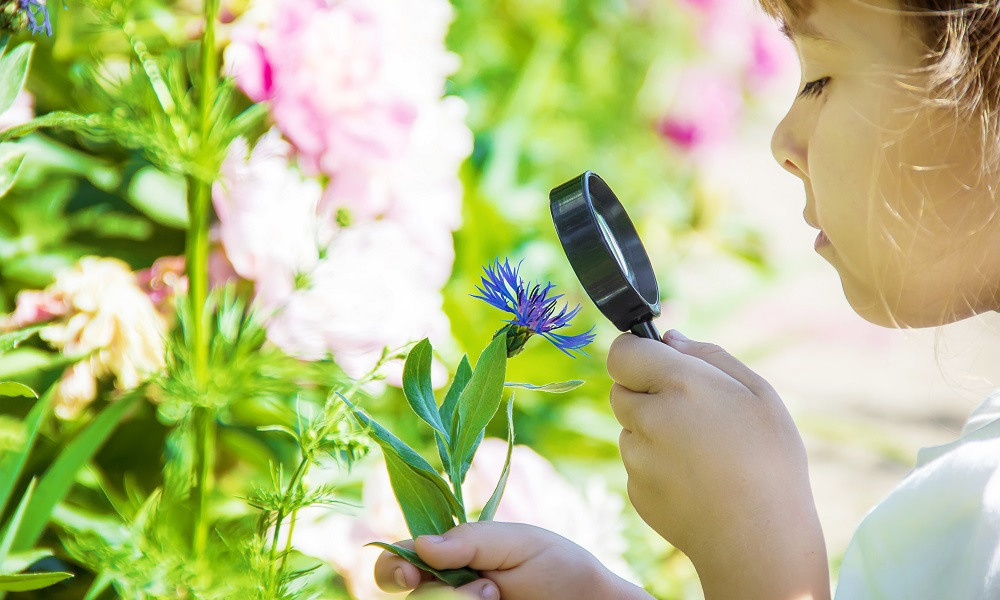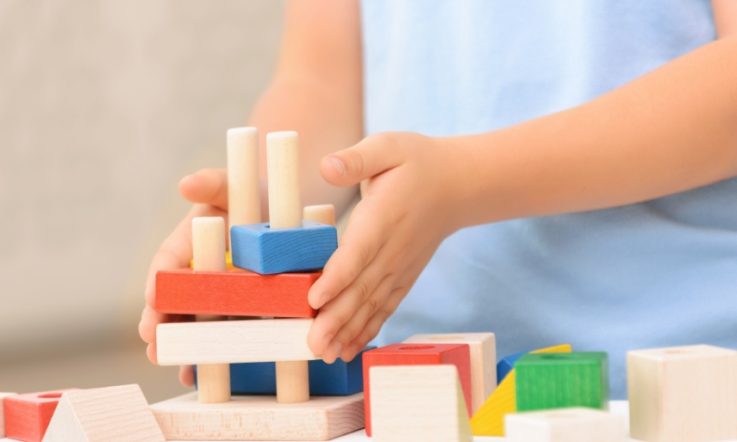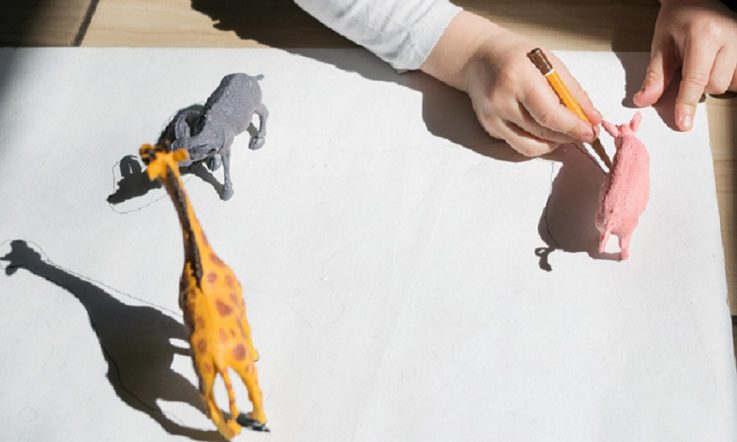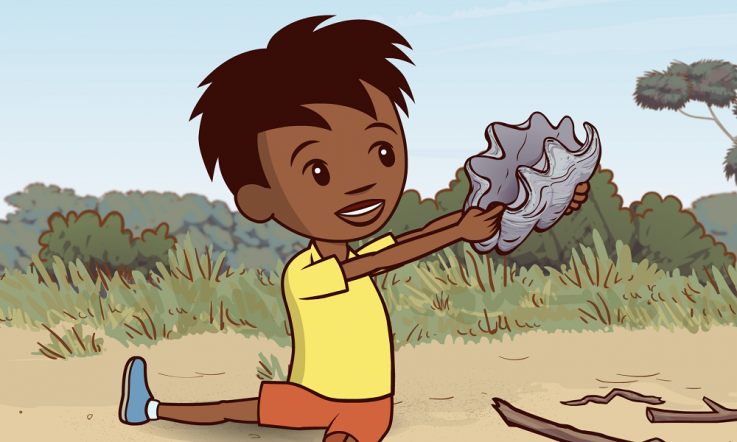Thanks for downloading this episode of The Research Files from Teacher magazine. I'm Dominique Russell.
A new series of research papers relating to science learning in the early years has been published by ACER (the Australian Council for Educational Research). The series aims to help educators of children in preschool to Year 2 to incorporate the latest research into science learning into their teaching. The series is made up of four separate papers – Early years and science integration, Science inquiry and skill, Monitoring children's learning and Educator facilitation.
In each paper, which are named from one to four, the authors discuss the significance of the particular subject, the relevant research, how it links to outcomes in the Early Years Learning Framework (or EYLF) as well as some aspects of the Australian Curriculum.
They also describe a handful of activities that can be completed with children to help develop their science inquiry skills, like observing plants, and exploring light and shadows. These activities can also assist educators in monitoring the science learning of the children they're teaching. They're suitable for parents whose children are learning at home, as well.
In this episode, I'm joined by a co-author of the series, Gayl O'Connor, a Senior Research Fellow at ACER. You'll pick up on the big emphasis on why integrating science learning in the early years is so beneficial for children and their teachers, and we also discuss identifying and managing common misconceptions children might have about science concepts; and managing a lack of confidence in science as an educator.
Each of these papers, and the accompanying resources are freely available, so I'll be sure to place a link to where you can access them in the transcript of this podcast at our website, teachermagazine.com.au. Now, let's jump in to the episode.
Dominique Russell: Gayl, thanks for joining me for this podcast episode, it's great to have you. Can you tell me a bit about this series of papers and how can they be useful for early years educators?
Gayl O'Connor: Yeah, sure. Thanks for having me. The series focuses on the importance and value of including science in the early years. And the series defines the early years as the two years prior to school and the first three years of primary school.
So my colleague Christine Rosicka and I conducted a national and international literature survey which ranged across several hundred papers. And we came down to 50 key papers that helped us identify several themes. And these covered the evidence of what children are capable of understanding and doing in science in the early years and also identifying effective ways that early years educators can incorporate science into their programs.
So the four themes that emerged were: early years science and integration; science inquiry skills, monitoring children's learning and educator facilitation. So those were the four papers that we ended up scoping out and writing to. It did take several years to do this. We conducted the research, we wrote the papers and then we developed resources to accompany the papers because we wanted to have a practical way for educators to take those and implement them with the children in their centres.
We hope that those accompanying hands-on activities are useful because they'll help support the scope of science learning in the early years as is described in the EYLF, and they also cross over into the Australian Curriculum for Foundation to Year 2.
DR: Fantastic, and one thing that I picked up especially throughout reading the papers was you talk about the value of integrating science learning in the early years. So I was wondering if you could explain exactly what that means in this context and why it can be so beneficial for both children and their educators?
GO: For integration, we're really just looking at ways for educators to foster opportunities that arise for children to make connection across the different aspects in their life, and this includes the natural world, and at the same time, building a set of science inquiry skills. So that's building on children's natural curiosity they have about the world around them and it is also fostering those positive attitudes towards science from an early stage.
So when educators are looking at designing their programs, they can look for those opportunities to build in science with the literacy or mathematics activities that they're already doing. So you could look at science inquiry skills of observation and discovering patterns when you're looking at mathematics, which often is looking at the same types of skills. They have a unique focus, but there's those opportunities to build together.
Also, language skills can be developed and revised as children undertake an experiment when they're discussing what they found out and what they're doing. Also listening to a story and they can gain an understanding of the purpose and reason for their investigation through story telling. And educators can look for those opportunities as they're planning to integrate it seamlessly with what they're already doing. So it shouldn't be seen as just a separate thing you do, or fragmented ‘let's do a science topic today'.
DR: What else I thought that was a really important distinction with how you mentioned just there it's every day occurrences, every day activities. You also in the paper make it clear that you're not about asking early years educators to be experts in all topics of science, because they might commonly lack some confidence in teaching science, particularly if they aren't supported by a science background themselves. So if an educator who's listening to this is kind of fitting themselves into that category, what are some considerations they can make to begin tackling that?
GO: Yeah, confidence is something that can build with the children, too. The children's confidence grows as the educator's confidence grows by starting in really simple ways. And they're just the things the educators are already doing in good practice, where they're saying ‘okay children, we're going to explore what's happening in the garden this week'. And the children will go and do that through their natural curiosity.
But it's just being ready there with some extra questions. It might be as simple as saying ‘let's look carefully at the colours of the leaves. Can you see the patterns on the leaves?' and getting them to describe what they're seeing there. Or as a bird flies overhead, ‘Look at that bird. I wonder where it's going. What is it going to do next?'
So it's just looking for those everyday prompts which you don't need any really deep scientific understanding about it, it's the building up those scientific skills – looking, observing, making sense of what you're seeing, and starting to hypothesise – ‘oh, what might be happening' and ‘why?'
Many early years educators are already science educators, but don't think about themselves as that. But they're already setting up fantastic tables in the corner, which are the science tables, with really amazing objects for the kids to go and have a look at and a magnifying glass perhaps on hand, or a microscope. But it's really just taking that extra step to actively ask questions of the children as they're using the objects, having a look at them and saying, ‘oh let's compare that one to that one. How's that one different? I wonder where that animal lives'.
So that's one way to start to build confidence. And it's okay not to know all of the answers to questions children might raise. We know they can come up with some really tricky and random questions. It's okay to say ‘wow, that's a great question, let's find out together'. Because that's what scientific inquiry is about, and that's fine.
DR: And so, on that point there about the questions that students or children might ask you. I noticed in the report too that you wrote ‘one of the reasons why young children may find science learning difficult, is that they often have existing misconceptions when it comes to science concepts'. I'm sure that some of these misconceptions might come about in the questions they're asking, or the answers they're giving to educator's questions. Is that a way that educators can go about identifying the children's existing misconceptions?
GO: Yes, it is. They're listening to what the students are saying. It can be sometimes difficult if you don't know what the correct answer is from a scientific point of view. So one way that we're supporting the educators is to provide some concept cartoons. This is commonly used in the literature as a way to provide a scenario where you might have two or three characters talking about something, and they have different viewpoints. So the educators can use those with the students, their children, to say, ‘okay, who do you agree with and why?' and out of that, you start to see what some of these misconceptions are.
So, for example, we have one where children are looking at whether things in the garden are plants or not. And from that, children might have a very narrow view of what a plant is. And that gives the educator a chance to expand out from there.
You can also ask children to draw what they're seeing, what they're observing, or tell their own story. And from that you can start to gauge how well they understand the concept and whether they are coming up with any of those misconceptions. There are lots of those in the literature.
DR: And another one that I thought was quite interesting too was a misconception relating to light and shadows. Could you explain this for listeners? And are there any other common misconceptions that you'd like to discuss too?
GO: Yeah, well it's very interesting that we learnt that ourselves from the literature that children hold this misconception. So some children think that a shadow is formed when an object is producing or making that dark area itself. They haven't yet understood that to form a shadow, an object has to block a light source to create the shadow. So they think the shadow is a thing in itself. So that was really interesting to find out. And as I mentioned there are many other misconceptions that come through the literature and it's a fascinating area.
Another example is, as I mentioned, about the plants. So some children have a very narrow view of what a plant is when they're young. They always think of this, perhaps, as a stereotypical pot plant, and they think all plants must have green leaves and brightly coloured flowers. Which is not, you know, it's not out of the blue that they would think this, because they see it from their experience.
So we can, as educators, we can provide them other examples to start to broaden that view. So their misconception is not strengthened, it's challenged by ‘Oh, what about this grass? Is that a plant? What about these lemons growing on the tree, or this bunch of carrots?' They're plants, or parts of plants.
DR: So in Paper 2 you speak about the methods to monitor children's science learning which is also a key component in all of this. So what are these methods and why are they effective?
GO: So the methods really relate to what I was mentioning before about where we have chances to ask students to draw something or describe something, that's very powerful, or to tell their own story about why something is happening. So through that we want to gauge what their current level of understanding is of a concept or their current understanding of how you go about gathering information in a scientific investigation.
So it's giving them those opportunities to demonstrate and tell us what they already understand. And it's also giving them more tailored activities with some scaffolded guidance from the educator to lead them through.
So it's something like the activities we've produced which then will give some information on how the students or children understanding this idea at the moment and where might I help them move on? Like the example I just mentioned about the plants. So that's actually around an activity called plant treasure hunt where the children would go outside and have a look for the different types of plants and the educator might point out something growing up the outside of the building, or something on the ground – are these all plants? Why/why not? And that discussion happens.
So it doesn't have to be a formal way of monitoring, it's really just what you would do on a daily basis. But it is useful to have some kind of records, as people do already have records of how the children are progressing in their development in general – and the various outcomes of the EYLF demonstrate the types of things to monitor – but it's useful too, to have something quite specific about the way children are starting to build their understandings and their skills in science specifically and we provide some checklists to help with that as well as one of the resources.
The activities for Paper 1 focus most on concepts; the understanding that the students have around concepts in science. And the activities in Paper 2 are focusing more about developing their inquiry skills. But the literature does mention that these shouldn't be done in isolation. It's really appropriate for young children that they take an inquiry approach. So there's an investigation – something to find out about, something we want to learn about, and that there needs to be some underlying content or concept that sets that situation, like is this a plant or not, how do we know? That's understanding about the science content and then the inquiry is how we're going about our investigation. How are we going to find out what's the difference, is this a plant or not? And you need to make observations, look for patterns, and come up with conclusions.
So that intertwining of conceptual understanding and building inquiry skills, is really important and it fits really well into the approach of early years educators where they often are using an inquiry-based discovery approach.
That's all for this episode, thanks for listening. You'll be able to access this series of papers, which is freely available, by following the links in the transcript of this podcast available under the podcast tab at our website, teachermagazine.com.au.
Science in the early years series:
Paper 1: Early years and science integration
Paper 2: Science inquiry skills
Gayl O’Connor says monitoring the science learning of children – to pick up on their understanding of concepts and any possible misconceptions – doesn’t need to be formal. Rather, it can be built into what you would already be doing on a daily basis.
As an early years educator, what strategies do you have to monitor student learning in an informal way? When monitoring their learning, are you able to pick up on any common misconceptions among children? How do you begin to address them?



